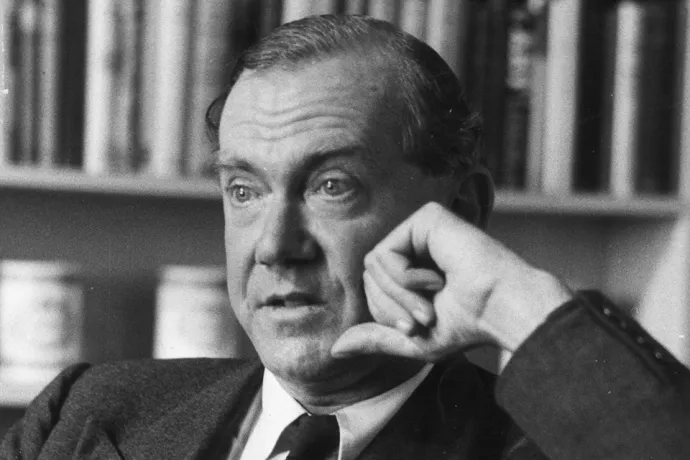
New biography traces the storied life of writer Graham Greene
British novelist Graham Greene had the kind of life that biographers dream of. Over his long career, the writer, journalist and sometime spy found himself in political hotspots around the globe, enmeshed in torrid love affairs and coping with mental health crises that included several attempts to end his own life.
Through it all, Greene, who is lauded as one of the leading novelists of the 20th century, wrote more than 25 novels—thrillers as well as more weighty literary works—that explored the moral and political issues of the modern world, often through a Catholic lens.

Now, a new biography of Greene by U of T Mississauga English professor Richard Greene (no relation), traces the writer’s life and literary work through the tumultuous global events of the 20th century.
Russian Roulette: The Life and Times of Graham Greene, launched Sept. 3 in the United Kingdom, is garnering rave reviews for its wry wit and compassionate take on the adventurous and oft-troubled writer. The book will be released under a different title in North America. It launches in November 2020 as The Unquiet Englishman: A Life of Graham Greene.
Greene scholar and noted poet Richard Greene knows his literary namesake well. In 2008, he published Graham Greene: A Life in Letters, an account of the author’s life in his own words. His new biography takes a different, more narrative approach.
“A life and a career lived in the midst of our complicated last century offers a great deal,” says Richard Greene.
He notes that his subject’s personal troubles have been well documented by other biographers and in the British press. “In Graham Greene’s life, the prevailing wind was bipolar illness, which I navigate as carefully and discreetly as I can,” he says. “He had a very troubled private life—his marriage fell apart, his infidelities were numerous. While those things do make an appearance, I didn’t want them to take over the book.
“I thought about what matters and boiled it down to three things: the growth of his skill as a writer, his involvement in places of political trouble, and his involvement in cultural, literary, religious and political developments of his time.”
Graham Greene’s journalistic assignments took him to far-flung places of turmoil, like Liberia, Sierra Leone, Paraguay, El Salvador and the Congo. The former member of British spy agency MI6 also delivered messages from the British government to Viet Minh leader Ho Chi Minh, and maintained an unusual friendship with Panamanian leader General Omar Torrijos.
Those experiences influenced his literary work, inspiring books like The Quiet American, which Richard Greene describes as “a love story and a story of betrayal among friends in a complex political environment” during the end of French colonialism in the country.
The 1955 novella had a major influence on writers at the time who turned to the story to better understand growing American involvement in 1950s Vietnam. “When the American Vietnam war came along, all the young journalists carried it in their backpacks,” Richard Greene says. “His work inspired their journalism.”
Haiti was another source of fascination. “He was interested in Haitian painters, writers and poets, and fell in love with the place” Richard Greene says. The 1966 novel, The Comedians, explores themes of political repression and terrorism in a country under the brutal rule of dictator François “Papa Doc” Duvalier.

Richard Greene delved into archives in Texas, Boston, Georgetown and the United Kingdom where the results of his sleuthing puts to rest a mystery that has long intrigued fans of the author.
On the eve of D-Day, Greene abruptly left his desk job with MI6. It is largely thought the move was made because he guessed that his friend and mentor Kim Philby was a Soviet double agent. Philby later defected to the U.S.S.R.; however, the true reason for Greene’s departure from the agency proved to be more mundane.
“He was bored, and he had a film contract that put pressure on him to get out of MI6 at the earliest moment he could,” Richard Greene explains.
Richard Greene is himself an accomplished scholar and award-winning writer, editor and poet whose previous pulications include the selected letters of eccentric British poet Edith Sitwell (1997), and poetry collection Boxing the Compass (2009), which was recognized with the 2010 Governor General’s Literary Award for English language poetry.
Richard Greene incorporates lessons from his subject in his undergraduate and graduate creative writing workshop. In the upcoming winter semester, he will also draw upon the author’s thrillers in a new course, Spy Fiction (ENG344H5), which examines the rise and popularization of spy fiction in the twentieth century.
Richard Greene’s research is supported by an Insight Grant from the Social Sciences and Humanities Research Council.
